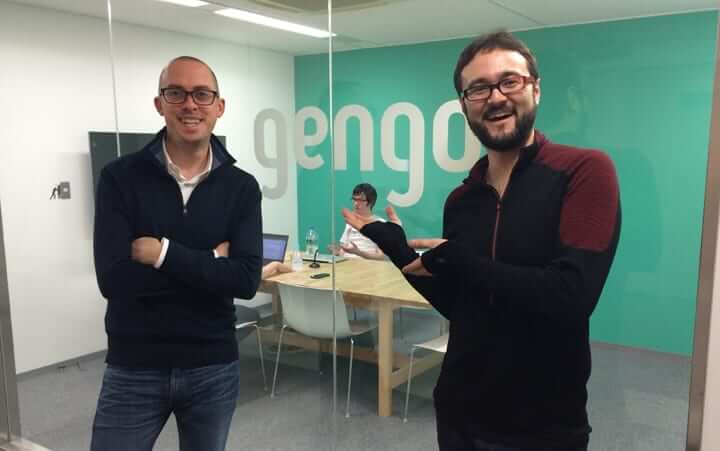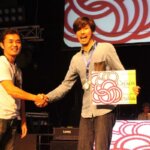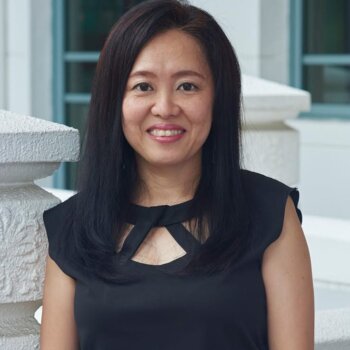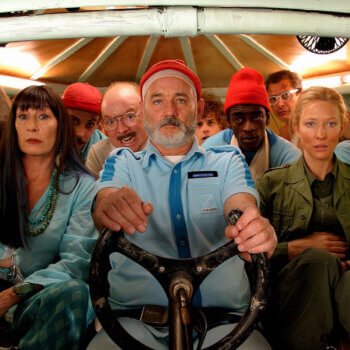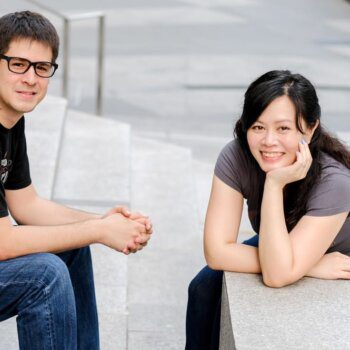Robert Laing has been international from the start. Robert grew up in the UK, Australia, Belgium and now have been living in Japan for the past seven years with his wife, who’s Japanese, who he met in the UK. Robert’s education was in design, and he started his career as a web designer and programmer. After working in design and branding agencies for corporate clients and starting his own web agency, Robert decided to found Gengo with his co-founder Matt Romaine. Before Gengo, Robert knew less than zero about translation.
What exactly is Gengo?
Gengo is a global, people-powered translation platform enabling everyone to read and publish across languages. We have a diverse and growing community of more than 10,000 pre-tested translators from 114 countries working across 34 languages and 56 language pairs. Through translation, we allow businesses of any size to connect with a global audience. We provide good-quality, fast and affordable translation at scale through Gengo.com and our API.
How did you come up with the idea of Gengo?
Matt and I kept bumping up against the language barrier from two opposite angles. As part of my web design work in Japan, I’d always need simple things translated like blog posts or emails. I’d end up asking my wife because traditional translation agencies were too expensive and cumbersome to work with, and machine translation sucked. On Matt’s side, he’s bilingual so he’d always be pestered by others to help out on simple translations. So we both wanted to make it simple to translate everyday content. We both knew how to make things online. When we founded Gengo, APIs were becoming popular and crowdsourcing as a concept was building up steam, so we decided to build something based on those new, exciting technologies.
Could you walk us through the process of starting up Gengo?
We made a minimum viable product that allowed people to order translations, for translators to take tests and work on jobs. We put the website online, waited for piles of cash to roll in. Surprisingly it didn’t, so we started the hard work of actually building the business, hustling for customers, experimenting with marketing and building the platform. For the first year Matt and I made basically zero money, but stuck with it because we loved it.
How has it been like managing the business since?
It’s been the biggest learning experience of my life, and I’d venture to say the biggest learning experience for most other Gengons too. Working in a fast-growing global company is immensely challenging, because there is no such thing as a status quo. I love it.
Did you find anything particularly difficult during the startup?
Everything’s difficult, but I think particularly in 2009/2010 we felt like we were operating in a vacuum, because there were so few startups in Japan. In retrospect, this was positive because we did our own thing and didn’t get distracted, but at the time we were never sure if we were kicking ass or a bunch of losers.
How was the initial reaction from the consumers?
The biggest thing you have to fight against is apathy. If people simply don’t care about your service, you lose. We found that people who “got” Gengo really loved it. The surprising immediacy of a good-quality human translation blew people away.
What is your strategy against your competition?
If we had no competitors, I’d worry. But we just try to do things the Gengo way, and be very sure of our own strategy, rather than thinking of competitors. So we treat our translators well, we stay honest, and we keep things simple for our customers. That’s surprisingly hard for others to copy.
What can you tell us about the industry? Have you developed any industry insights that you could share?
Translation is one of the world’s most inefficient industries, filled with some of the world’s loveliest people. It will not look the same in ten years.
How have you managed to stay relevant in this industry?
We’re the innovators in this industry, so I hope we’re relevant! Ask me in 10 years.
If you could start all over again, would you change anything about your approach?
Many small things, but none of the big things.
What do you think about startups in Asia?
In Asia I’m most familiar with the Japan startup scene, and what I see there excites me. There is more activity, more acceptance of taking risk, more venture funding, more cool stuff happening. The world is getting more interesting.
What are some personal principles or personal values that guide you and your career?
Gengo’s values all originate from Matt and myself, and my favorite is “Weniger, aber besser” which is borrowed from Dieter Rams, the industrial designer. It means “Less, but better”. It’s not just a design principle, you can apply it to anything: an email, a meeting, an interview answer. I’ll stop there.
What is your definition of success?
I think success might be a state, not an event. So for me, it’s to be excited to get up in the morning every day, and to help many other people feel the same. But who knows.
Why did you decide to become an entrepreneur?
I wanted to work on something cool, shape my environment, and do as many interesting things as possible.
What do you think are the most important things entrepreneurs should keep in mind?
I work hard to heed this good advice: Cultivate a truthful environment from the start, or you will invite disaster. Hire people who are rigorously truthful, or your organization will operate in fantasy. Identify what is really working, or you will never grow. Never, ever, ever lie.
In your opinion, what are the keys to entrepreneurial success?
Wanting it, hard work, luck.
Any parting words of wisdom for entrepreneurs out there?
If you have been programming for over sixteen hours, and, needing to pee, you get up from your desk, you go to the office bathroom, start your business, then you look up, mid-pee, and you, unusually, are able to look in the mirror, and in noticing this, confused, you realize you are actually peeing in the sink, then you should chill out and get some sleep.
Connect
Website: http://www.gengo.com
Facebook: http://www.facebook.com/mygengo
Twitter: http://www.twitter.com/gengolt
